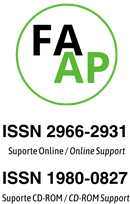Aspects of sustainable training in engineering courses: a literature review
DOI:
https://doi.org/10.17271/1980082720220244201Keywords:
Construction Industry, Civil Engineering, Sustainable developmentAbstract
In the pursuit of growth and development, human beings can end up threatening their own existence, making education focused on sustainability an urgent necessity. As construction industry is one of the largest in the world, responsible for the consumption of large quantities of raw materials and with a large workforce, a more careful look at professional training in this sector is necessary so that current and future demands of society can be met sustainably. This objective of this article is to present fundamental aspects of civil engineer training, taking into consideration sustainable development and the need to modernize the construction industry. The methodology consisted of a systematic literature review (SLR) using the Engineering Village, Scopus and Web of Science databases. This study is relevant in highlighting not only the technical training necessary to follow the technological transformations that have resulted from the current industrial revolution, but also the importance of professional-citizen training aimed at building a more just world. The results identified the skills and technologies that assist in civil engineer training, successful educational strategies used in engineering schools, ways to incorporate sustainability concepts into teaching, and a teacher profile for preparing this engineer. The information obtained is significant for Higher Education Institutions (HEIs), as the topic is current and necessary for a more equitable, socially inclusive, economically fair, and environmentally sustainable world.
Downloads
Downloads
Published
Issue
Section
License
Copyright (c) 2024 Periódico Eletrônico Fórum Ambiental da Alta Paulista

This work is licensed under a Creative Commons Attribution-NonCommercial-ShareAlike 4.0 International License.












